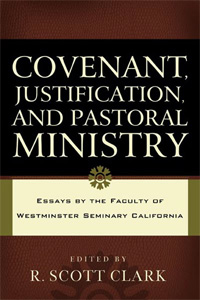At the new WHI site. (HT: Cal.vini.st)
Pietism
On The QIRE There's No Place to Stop
If the heart of the Christian faith and life is the unmediated encounter with God, even divinization (theosis), then how does one prevent a synthesis of evangelical pietism and New Age spirituality if the latter offers such access? According to this piece . . . Continue reading →
Machen on Mission
Thanks to WSC student Brenden Link for this bit from Dassie. More reasons we should all be Machen’s Warrior Children.
To Change the World: James Davison Hunter Challenges Transformationalism
Hunter develops an alternative view of culture, one that assigns roles not only to ideas and artifacts but also to “elites, networks, technology, and new institutions.” American Christians—mainline Protestant, Catholic, and evangelical—will not and cannot change the world through evangelism, political action, . . . Continue reading →
Andy Calls it Pietistic Goofiness But I Call it QIRE
If I had written this someone would call it mean but since Andy wrote it, I’m sure it will be fine. What matters is that it’s true.
Collision Avoidance Systems
Modern aircraft have collision avoidance systems that alert pilots when another aircraft gets too close. Some modern cars have similar technology. In my experience, it’s not just cars and aircraft that avoid collisions. Churches and Christian leaders also have a tendency to . . . Continue reading →
Presbyterians and Quakers Together
I see that Tony Jones has posted something critical of small/cell groups (I don’t know where and I can’t find it now. You’re welcome to post a link in the comments). Perhaps now that a leader in the Emergent Village has suggested . . . Continue reading →
Wilhelmus À Brakel On Pietism
Some years ago there was a sizeable movement among the Lutherans in Germany toward religiosity. Of some we believe that it was in truth, but with the majority it was but an illusion. This counterfeit religiosity has in some places also affected . . . Continue reading →
“Did God Leave Me When I Went To Seminary?”
Ryan at Sola Gratia raises a question that many first-semester seminary students ask. In essence the question is this: Before I came to seminary I had an active devotional life and a vital, immediate, experience of God and now things have changed. . . . Continue reading →
Why Did Arminianism “Win”?
Sometime back Howard wrote to ask, “How and when did Arminianism become the predominate view?” That’s a good question. First, we should distinguish between Jacob Arminius (James Hermanzoon) and the Arminians (or the Remonstrants). Relative to the conclusions Arminian/Remonstrant theology later reached, Arminius . . . Continue reading →
Yes There Is A Reformed Doctrine Of Justification
Recently I responded to John Armstrong’s post on the TIME magazine new Calvinist discussion. In his reply, John makes this startling claim: There is no monolithic Reformed voice on justification (especially re: imputation) and I would be very happy if we allowed a . . . Continue reading →
Sectarians: Socinians, Arminians, And Pietists
By the end of the seventeenth century, there was a sense that sectarian groups – a list that included Socinians and Arminians, as well as Pietists — were increasingly establishing themselves throughout Europe to the detriment of true Christianity. As Elisée Géraud . . . Continue reading →
Pietists And Rationalists Together
Some of the theologians of the era tended toward pietism or, among the Dutch Reformed, toward the Nadere Reformatie, and many evidenced affinities for the newer rationalist philosophies. Continue reading →
With Janet Mefferd On The Social Gospel
Here’s today’s episode of Janet Mefferd Today in which we discussed the “social gospel,” Walter Rauschenbusch, the emergent/emerging church movement and what it means that evangelicals seem to be heading back to this well for inspiration. We also talked about some alternative . . . Continue reading →
Office Hours: German Influences On Charles Hodge’s Theology
Princeton Theological Seminary was founded in 1812 in order to train men for pastoral ministry in the Presbyterian Church. Within a century of her founding, however, those features that had helped to make old Princeton a bulwark of Reformed orthodoxy had been . . . Continue reading →
Tillich: Pietism And The Enlightenment Both Fought Against Orthodoxy
It is entirely wrong to place the rationalism of the Enlightenment in contradiction to pietistic mysticism. It is popular nonsense that reason and mysticism are the two great opposites. Historically, Pietism and the Enlightenment both fought against Orthodoxy. The subjectivity of Pietism, . . . Continue reading →
The Evangelical Fall From The Means Of Grace
The prayers had been offered, the promises read, and the psalm sung. Two princes stepped forward to receive Communion, but the deacon refused to give them the cup. The superintendent of the city’s pastors ordered a second minister present to take the . . . Continue reading →
Church Or Conventicle? (Updated)
Reformed Piety And Practice
When Martin Luther (1483–1546) entered the Augustinian convent at Erfurt in 1505, it was a considered decision and the fulfillment of a vow he had made when he cried, “St. Anne, help me! I will become a monk.” So he did. Luther . . . Continue reading →
On Still Small Voices And Allegories
One of the first things I learned when I became an evangelical Christian in 1976, the year America elected a self-proclaimed “Born Again” Christian (Jimmy Carter), was that every Christian should expect to hear a “still small voice” from God. I learned . . . Continue reading →










